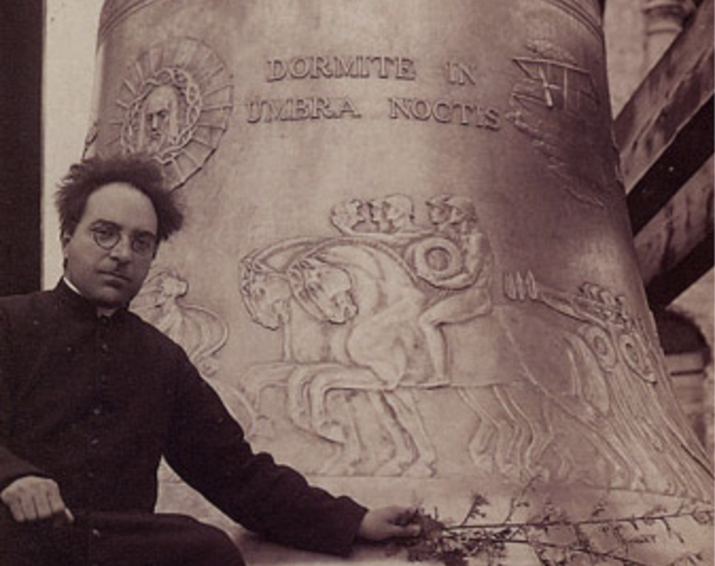FOR WHOM THE BELL TOLLS - PART 8
Everything had worked out well, but the Bell didn’t sound so good. And a lot of what was surrounding it wasn’t sounding too good either. Don Rossaro had joined the fascist regime, but without denying the universal character of Maria Dolens. Many, however, tried to transform the meaning of that symbol to individual interests. Some had even started to earn something from it. There had been documentaries on the meaning of her symbolic presence in Rovereto, articles in many newspapers, ceremonies, stamps and awards, but also lawsuits with the foundry for the poor outcome of the work and frictions with a film company for the rights to the proceeds of the films. Then there were those who wanted to move the Bell. And it wasn't just a question of the view.
On 17 June 1932, in the municipality of Rovereto, with the significant absence of Don Rossaro, a meeting was held at the end of which, «everyone agreed in declaring that, having respected the two great concepts of Humanity and the Fatherland so that they are clearly distinct yet at the same time in harmony with each other, it is advisable to transport and definitively relocate the Bell of the Fallen to Castel Dante». Thus, the disagreement arose again between those who linked the sepulchral monuments to an exclusively national vision of the war and those who were committed to overcoming old enmities by proposing a message of brotherhood between peoples. In short, it was necessary to understand how «very distinct» the concepts of Humanity and Fatherland were, and how "compatible" they were with each other.
The founder, obviously, also for religious reasons leaned more towards Humanity and was against a project that denied the very spirit of the Bell that had been created to commemorate the fallen of war, regardless of faith and nationality. For some wished to move Maria Dolens to the Ossuary of Castel Dante and the monument to the Trentino martyrs, where in contrast the intention would be to pay homage only to the soldiers of the Italian side.
But it wasn't enough, because now that the Bell existed everyone wanted to make it ring to celebrate their successes or the most varied of occasions. The priest was often asked to allow it to be started outside of the official «nighttime hour», thus violating the second article of the statute. It was above all the local fascist leaders who insistently asked for exceptions to this rule, both to celebrate regime events and in the case of visits by illustrious figures. Don Rossaro never allowed it, but on the afternoon of March 18, 1928, he heard the Bell ring at an unexpected time. He ran to the Malipiero bastion and found Gabriele D'Annunzio there, who with a group of fascists had forced the «good bell ringer» to start the electric mechanism that moved the Bell. A few days later, fiery letters were sent to various authorities, as well as Mussolini. The style was direct, and the words were clear: «deplorable violence and arrogance». «A very different homage – Don Rossaro complained to a friend – was expected from the “Soldier Poet” to the Sacred Bell, who with pity weeps and daily exalts so many of her humble comrades who died as heroes. The very painful impression aroused in the city prompted unanimous and unsparing indignation, and this act will remain in the history of the Bell not as a kind act of the Soldier Poet, but as a deplorable gesture of reckless arbitrariness».







